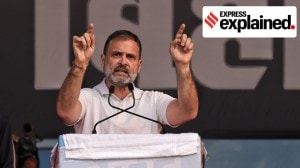- India
- International
Don’t pick and choose
Government must provide public goods, extend investment-linked deductions across sectors, instead of picking winners
 The latest Union Budget has sought to do this in respect of certain “sunrise” and “advanced technology” sectors.
The latest Union Budget has sought to do this in respect of certain “sunrise” and “advanced technology” sectors.
Should the government be in the business of “picking winners” — identifying particular industries that it sees as worthy of promotion and offering special incentives targeted at these? The latest Union Budget has sought to do this in respect of certain “sunrise” and “advanced technology” sectors. Thus, it is proposed that global companies will be invited to set up mega-manufacturing plants for semiconductor fabrication, solar photovoltaic cells, lithium storage batteries and computer hardware. Such investments will be allowed income tax exemption against capital expenditures incurred. Equally significant is the focus on leapfrogging and making India a “global hub” for manufacturing of electrical vehicles (EV). Not only will the goods and services tax rate on EVs be reduced from 12 to 5 per cent, consumers will be provided income tax deduction of up to Rs 2.5 lakh on the interest paid on the loans taken to purchase these vehicles.
On the face of it, there are persuasive arguments for such industry-specific schemes. In 2018-19, electronic items accounted for $55.47 billion out of India’s total imports of $514.03 billion, next only to petroleum ($140.92 billion). Emphasis on greater domestic manufacture of the former, and giving a fillip to renewable energy and battery-powered vehicles in the case of the latter, certainly makes sense from a balance-of-payments standpoint. The East Asian tiger economies, China and Japan, have all used “industrial policy” — via a mix of subsidies, tax breaks, directed bank lending and even import protection — to achieve global leadership in core sectors. Japan’s steel industry, South Korea’s shipbuilders, Taiwan’s chip foundries and China’s solar panel or telecom equipment makers are products of such targeted government intervention. India’s auto industry — the country’s exports of vehicles and components/parts added up to $14.28 billion in the last fiscal — is equally the result of a phased manufacturing programme (PMP) that forced the likes of Suzuki to raise local content in their cars by developing a domestic vendor base.
But will such industrial policy work in today’s times? The idea of attracting “mega” investments in electronic manufacturing is old wine: There’s already a Modified Special Incentive Package Scheme from 2012, under which not a single project has taken off the ground. The success story of PMP is an exception that only proves the general rule at least in India — about the government’s limited ability to promote select industries through a time-bound programme of incentives, without risking return of protectionism or capture by special interests. The government should stick to providing public goods (education, health, law and order, contract enforcement etc) and extend investment-linked deductions across sectors. The job of “picking winners” is better left to private industry. EVs are now 50-100 per cent costlier than regular vehicles. Continuous technology innovation will ensure they will, like solar power, get cheaper. And consumers will definitely buy when there is reliable charging infrastructure.
EXPRESS OPINION
Apr 25: Latest News
- 01
- 02
- 03
- 04
- 05

































